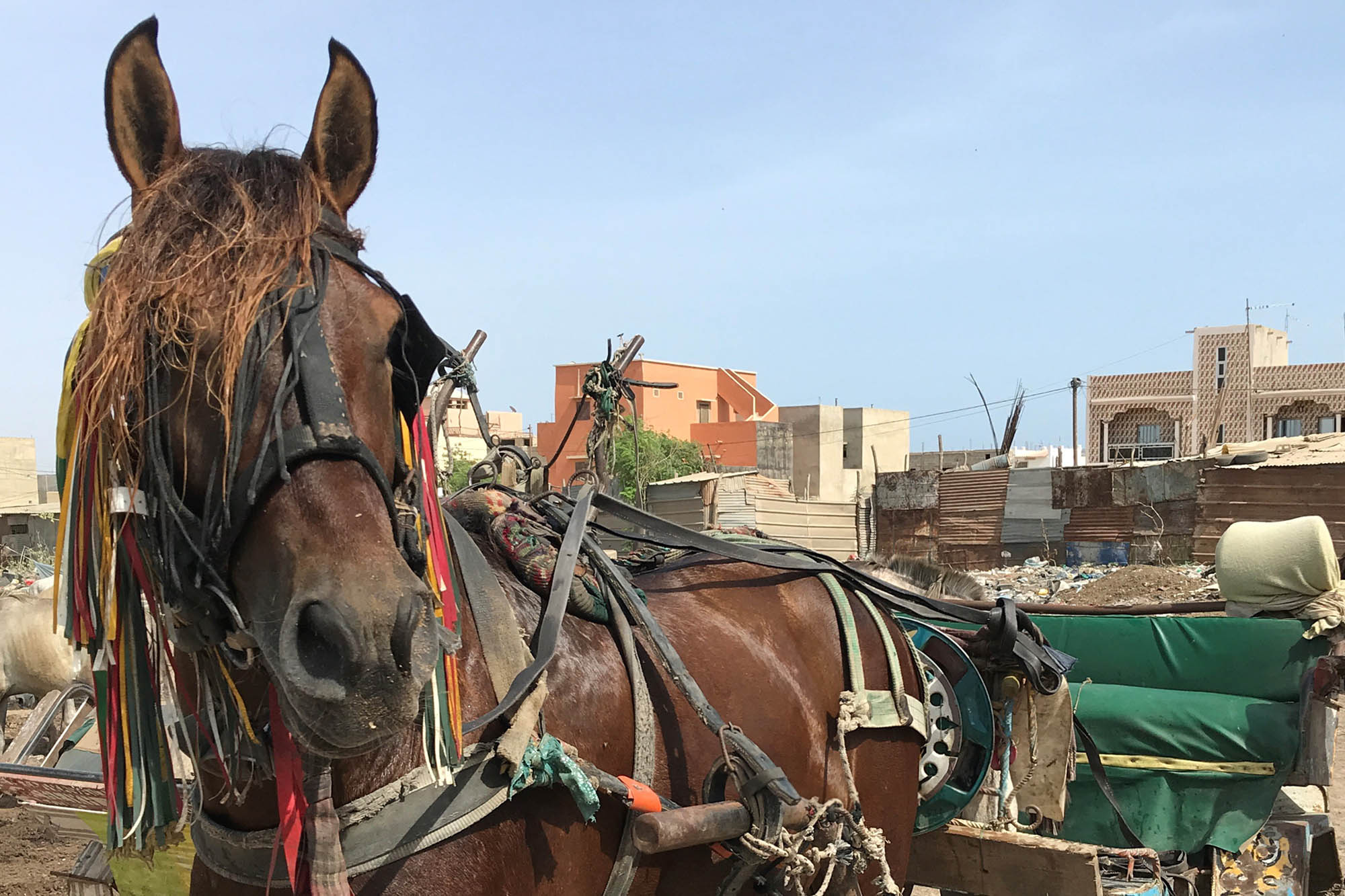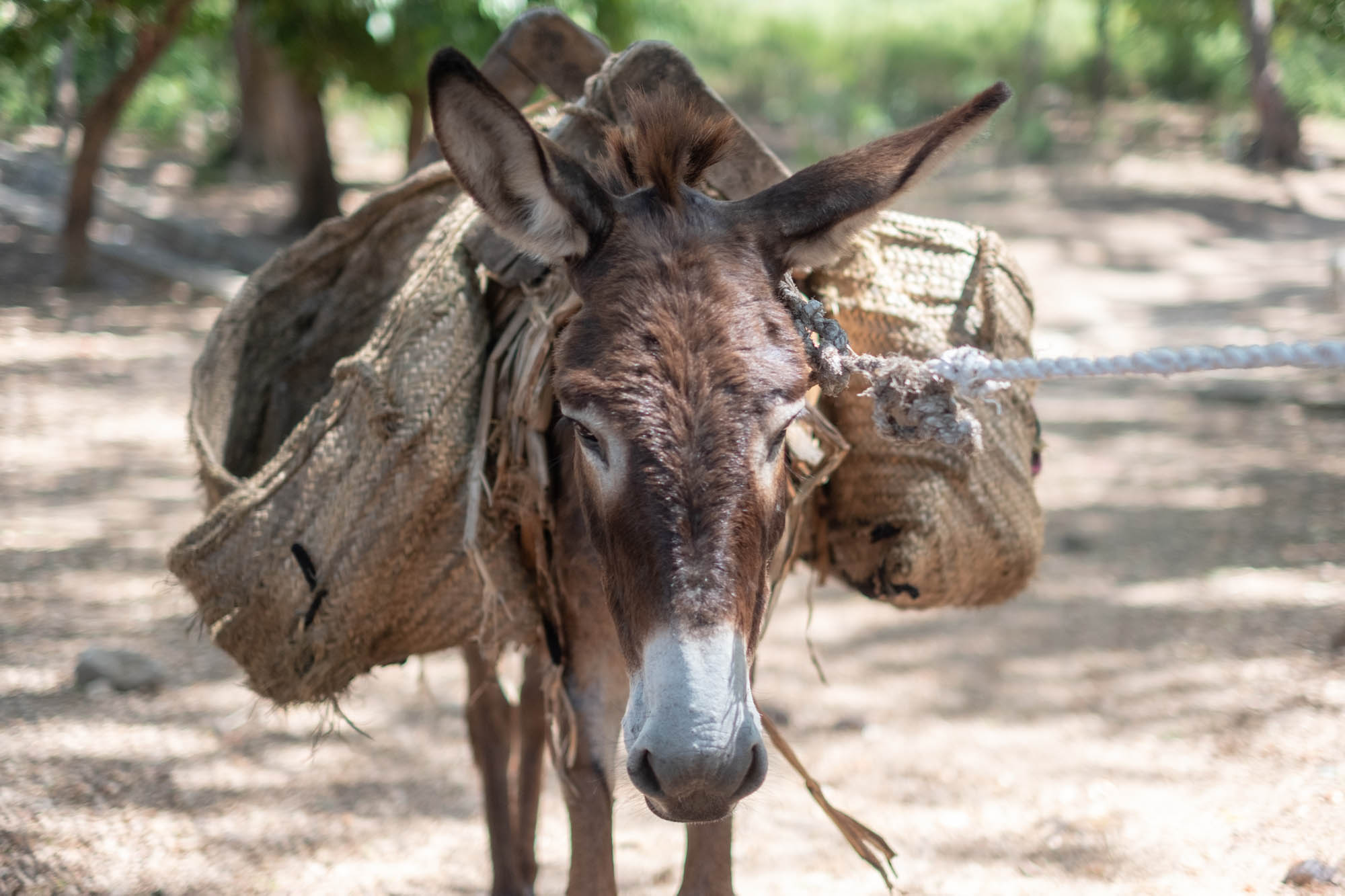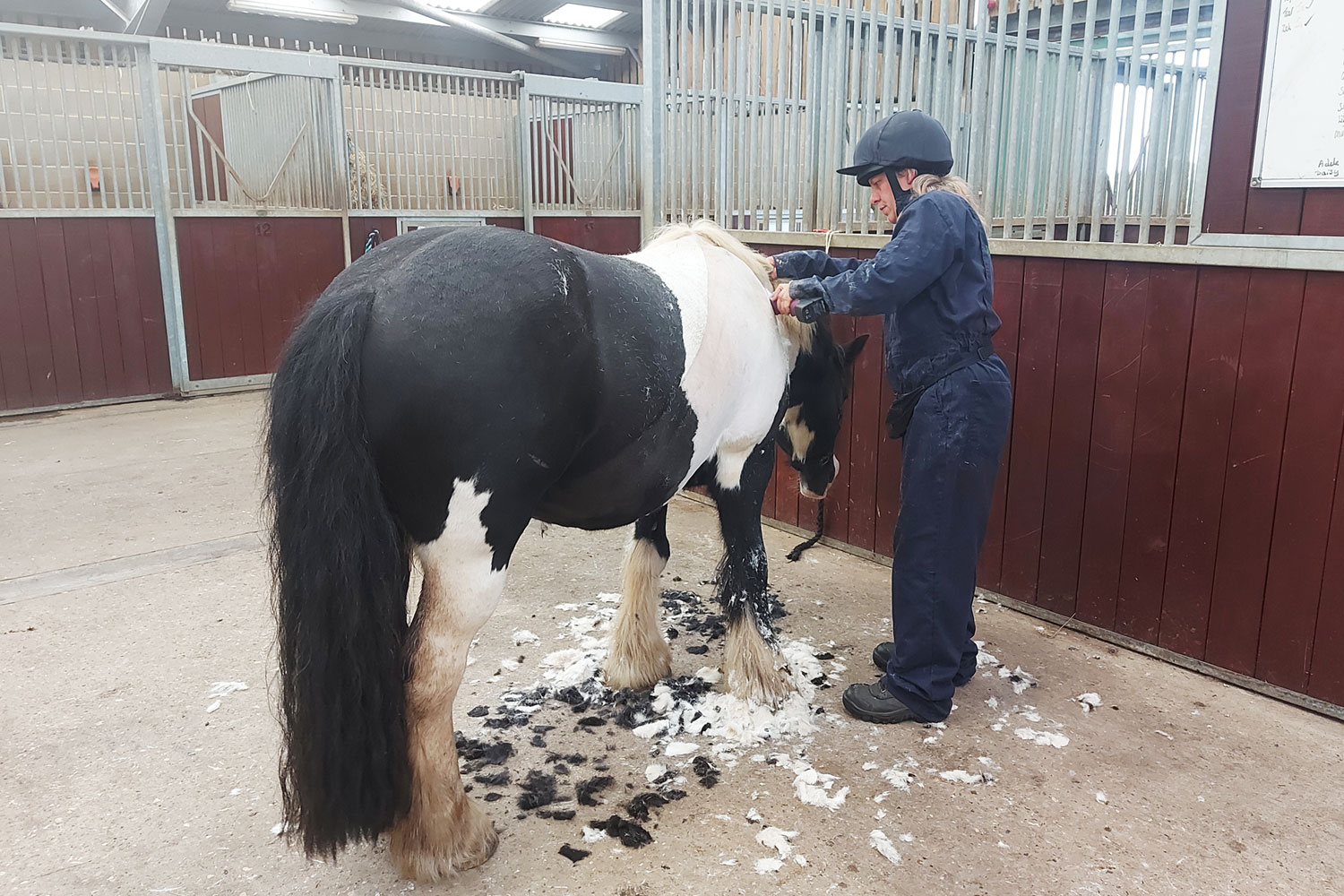Analysing the success of community projects in Senegal
Bursary student Faye Al-Nakeeb takes a look at the impact of our project in Senegal on the welfare of local working equines.
Posted on 07/10/2019

World Horse Welfare has been working with communities in Senegal for four years now and so I proposed a research project to analyse the impact of this on the welfare of local equines. My project would compare the situation in the areas the charity had been working in with that in areas not yet reached.
To collect the data, we used a questionnaire to provide an insight into the daily routine and management of the horse, plus an assessment sheet with a system to score the animal on their demeanour, body condition, lameness, wounds, foot soreness and general welfare.
We visited market places and working sites to witness the owner-horse interaction (feeling a bit like the Horse Police!). We tallied up the number of good and bad welfare situations we saw during 15-minute periods and the results were fascinating.
The study showed an overwhelming difference in the areas around the World Horse Welfare projects. There was a 72% average of good welfare situations in those areas, compared to 7% in other locations.
The questionnaires also revealed that 58% percent of owners who had taken part in one of the charity’s projects were using a trained farrier, compared with only 7% of owners who had not participated. 93% of equines belonging to owners who had taken part in a workshop received a foot score of 1 (awarded for correct shoeing) compared with 24% of non-attendees.
It was also great to see that advice on horse care and management had been taken on board in the communities near the World Horse Welfare projects, with horses having a rest area scraped clear of rubbish. In contrast, horses in other locations often had access to rubbish whilst resting, which can cause colic if they ingest it.
During our research, we found that owners in the areas which hadn’t taken part in a World Horse Welfare community project were keen to become involved in a scheme with the charity in the future, which was a really positive sign. We also found that the owners who had participated in a community workshop were very positive about the experience and fully appreciated the impact of their improved knowledge on how to best care for their horses.
Overall, the analysis showed that the working horses whose owners had taken part in one of the charity’s projects were stronger, better cared for and much more likely to be sound. They scored much better on the assessment overall, which was great to see as a clear indication of the positive impact of the World Horse Welfare project on equine welfare in Senegal.
Faye Al-Nakeeb, World Horse Welfare bursary student

Topics
Related News

Equine charities host New York Climate Week event
For the first time, The Donkey Sanctuary and World Horse Welfare have taken part in the annual Climate Week NYC.

Equine charities speak up for working animals at Africa Regional Forum on Sustainable Development
The International Coalition for Working Equids (ICWE) hosted an event at the United Nations Africa Regional Forum on Sustainable Development.
Recommended Blog Posts

How does the Animal Welfare Act 2006 inform our everyday work?
Our Chief Field Officer shares an insight into how this piece of legislation informs our work.

Clipping to help overweight horses and ponies lose weight
Hall Farm Yard Supervisor Adele tells us how clipping can be a really useful weight management tool, especially for horses and ponies who can’t be worked.

The senior horse: nutrition in sickness and in health
Find out more about the key considerations when caring for older horses, whether in work or retired and whatever their health status.
Enjoy reading stories like this?
Join over 55,000 other horse lovers and sign up for our email newsletter

Join over 55,000 other horse lovers and sign up for our email newsletter
Sign me up now